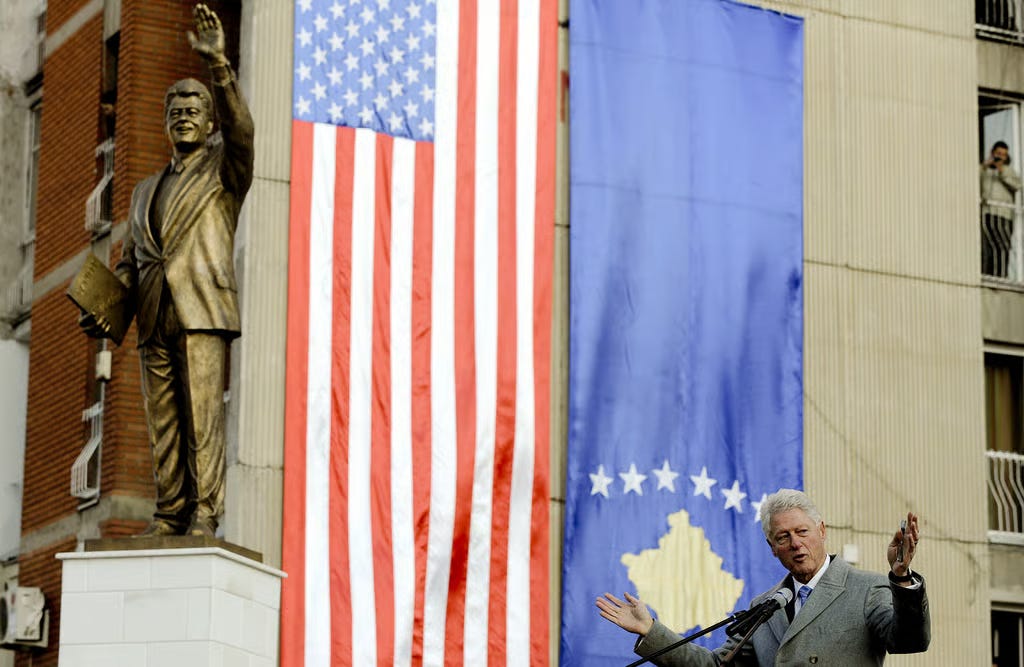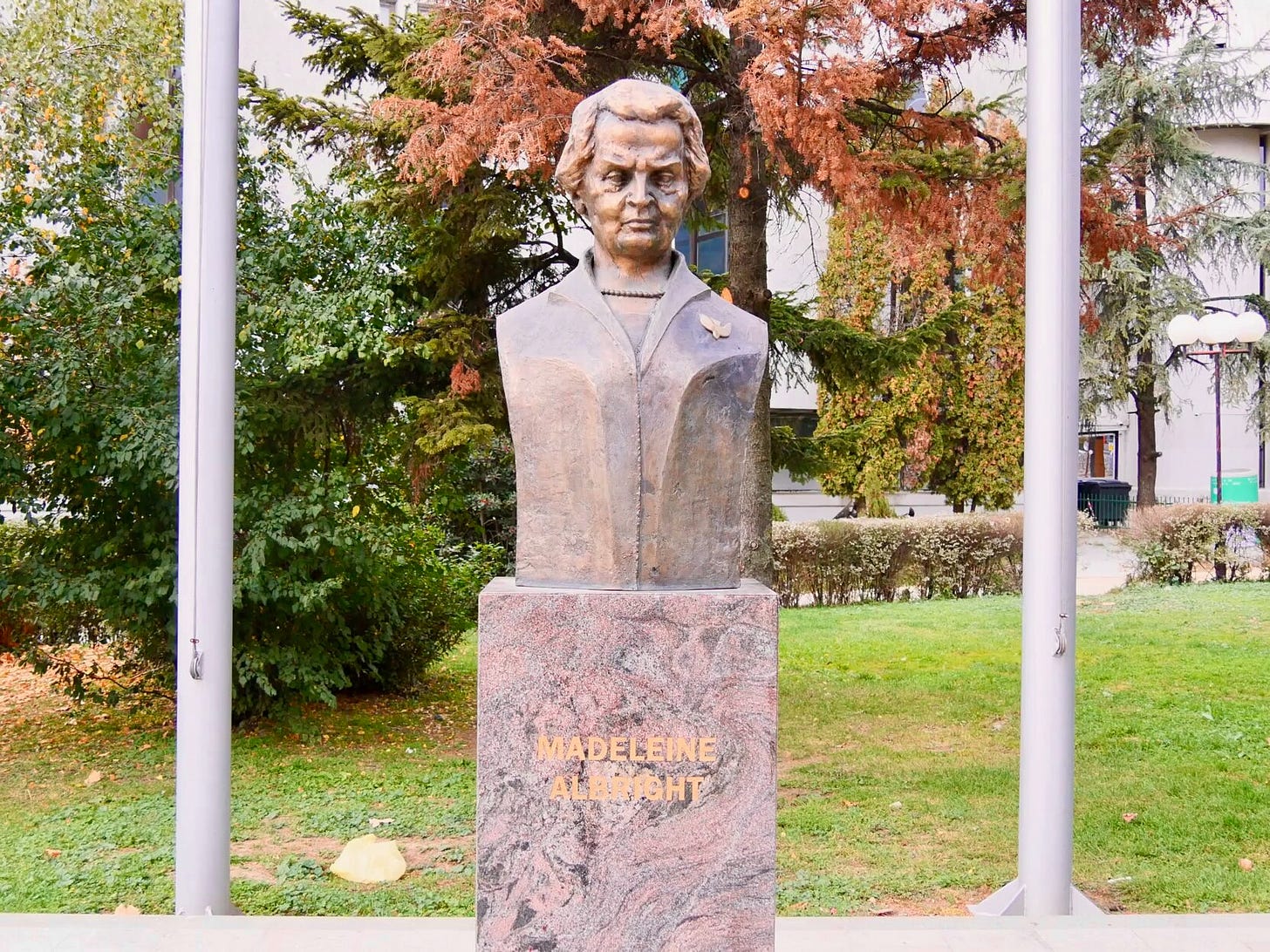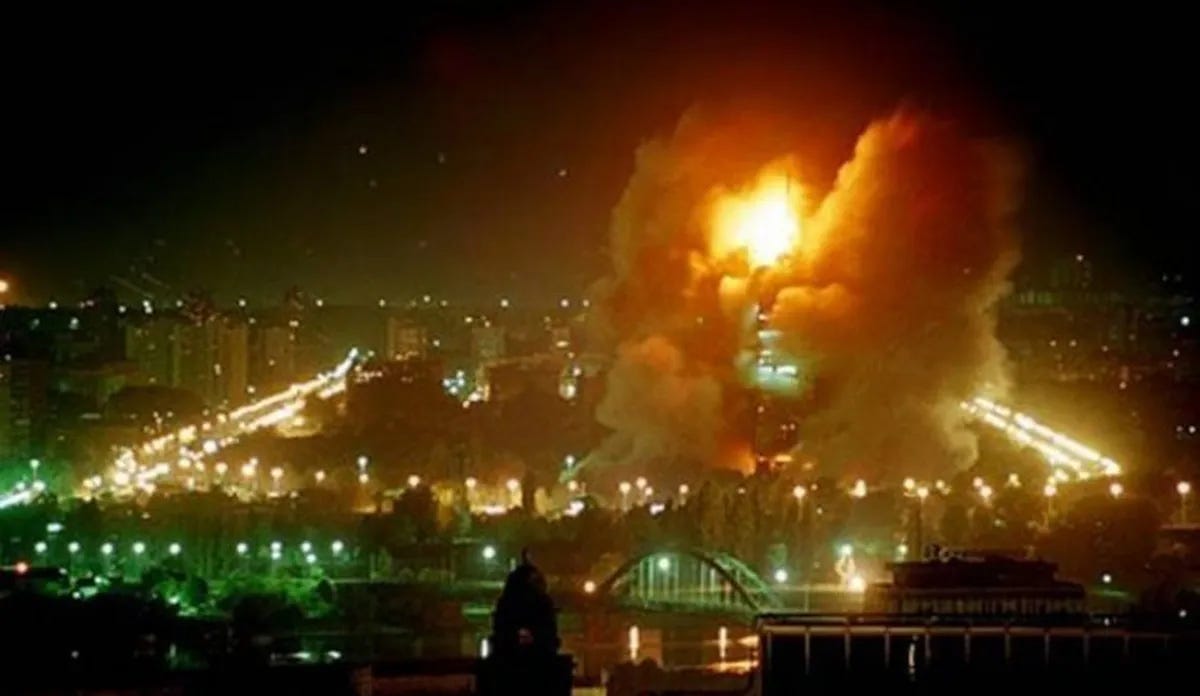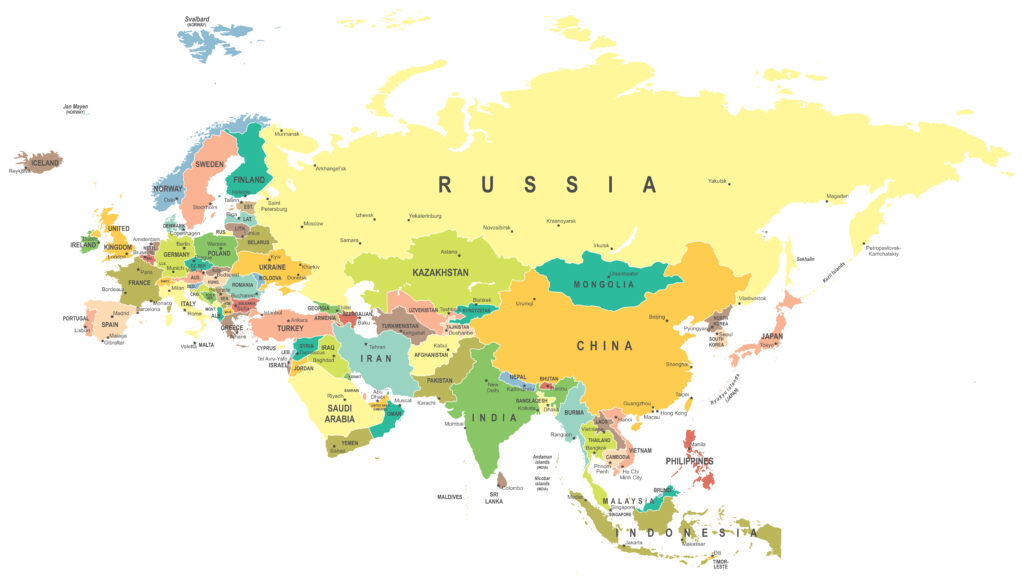Oliver Boyd-Barrett is a critical scholar of media and communication, propaganda, and international news media and film. Subscribe to his Substack, Empire, Communication and NATO Wars, here.
By Oliver Boyd-Barrett, Substack, 3/26/24
Crocus Hall in Context: America is Behind This 100% (Ritter)
Scott Ritter in interview with Judge Napolitano today describes Ukrainian intelligence, especially the military intelligence agency GUR, as a total construct of the CIA and MI6, and that there is nothing that happens in the GUR that is not known by, approved by and coordinated with the CIA or MI6. (I would say much the same about the SBU, Ukraine’s internal intelligence agency, which President Putin today says should be recognized as a terrorist organization).
Essentially, it (i.e the GUR) works for the USA, just as the war with Ukraine is nothing to do with Ukrainian independence but is being fought for US national security interests, which in this case, says Ritter, are directed towards the strategic defeat of Russia. Many times in the recent past (Kirch, Bryansk, Belgorod) and still today the CIA and the GUR are working in support of what Ritter describes as Russian nationalist groups’ efforts to invade Russia. The purpose of the most recent attempts was to disrupt the election of Vladimir Putin.
So this tells us that the CIA is capable of carrying out acts of violence on Russian soil. This of course is relevant to our understanding of last Friday’s events in Moscow’s Crocus Hall concert. We should note that the Russian Security Council secretary Patrushev has said today that Ukrainian Special Forces was behind (a link in a bigger chain of) the Crocus terror attrack. Dima [of the Military Summary channel] says that Ukraine was involved in training (in the Middle East – presumably Turkey) and perhaps in funding and assisting. Any such money would effectively have originated with the USA. We should also take account of statements today by the head of the SBU, presumably with the permission of Zelenskiy, confirming its responsibility for assassinations over the entirety of Russia, including the assassinations of Kiva, Tatarsky, Pritepin and former LPR officials.
The Tajik terrorists responsible for the Crocus Hall attacks, trained in Turkey, were supposed to have launched their attack on March 8 or the 9 because a major nationalist and popular superstar was due to perform there on one of those days (nobody seems sure as to which it was) and there would have been many high-level people present. But security was too tight, so the terrorists backed out and went into hiding until security was reduced.
The US says that it provided intelligence about this planned attack to Russia on March 7, with the specification “concert hall.” They clearly had foreknowledge. Ritter claimed earlier today that instead of that intelligence passing through formal channels as protocol requires, it was only passed on informally, that nobody contacted the Russian government, and Foreign Secretary Lavrov said as much the other day. The FSB Director today clarifies this: the evidence passed by the US to Russia he says was only of a general nature (presumably the same as was made public by the US Embassy on March 7 for the safety of US citizens in Moscow) and that Russia acted upon it.
I note that Anatol Lieven for the Quincy Institute today criticises Russia for not maintaining higher security at Crocus Hall in the light of the intelligence that they had received: but this criticism misses the point, first, that the intelligence, as claimed by Ritter, was not passed through the correct channels (according to Ritter, or was simply very general), and, second, that the dates given for the anticipated attacks turned out to be incorrect (or they were simply postponed from March 8 or 9 to March 20) and, third, since the expectation was that the purpose of the attack was to assassinate some of the important people who would have been present on March 8 or 9, and to disrupt the Russian presidential election, it was not unreasonable for the Russian authorities – assuming they were aware of the US warnings – to relax their guard and assume that the worst of the danger had long passed since the original, public US warning indicated that the danger would have expired by March 10th.
Mercouris identified a copy of the US warning in the Dutch-based, English language and extremely anti-Putin Moscow Times which communicated awareness by the US embassy in Moscow of imminent, extremist (but no mention of ISIS) plans to target large public gatherings in Moscow, including concerts, over the next two days. The warning passed on by the US to Russian authorities was simply the same warning that they had made available publicly. The heavy security presence at the concert of March 8 or 9 at Crocus City Hall did indeed indicate a significant Russia concern for security at that event.
The USA was therefore cognizant of something that it later attributed to ISIS-K, The Afghan offshoot of ISIS. Jihadi terrorists of this stripe conventionally take film or video footage of themselves uttering the Shahada or the oath of allegiance to Islam, raising their right index finger as they do so (in Islam, Ritter explains, the left hand is the hand of evil). The Crocus Hall terrorists used their left hand. They were not authentic jihadists who were prepared to sacrifice their lives; they were mercenaries who accepted money, and who fled from the scene of their crime (which they had perpetrated not only in the holy month of Ramadan but also on the holy day of the week, Friday). And they fled to what Ritter describes as their “safe haven,” their “true North” – Ukraine. Russian authorities were monitoring their communications and overhead them liase with Ukrainian military intelligence to secure safe passage through the border.
The Crocus Hall attack, as Napolitano notes, was an act of war that murdered 140 innocent concert-goers. Who in the USA would have known? Ritter notes that the National Security Acts of 1947 and 1948 authorizes the CIA as the only US agency authorized to carry out covert action (deniable by law, unlike clandestine action). The CIA’s special activities center is tasked with covert action. These are the people who train terrorists to invade Russia, and who carry out sabotage operations deep inside Russia.
The President of the USA is directed by law to be briefed on such activities. He has to sign a presidential finding that gives the CIA authority to proceed. And the finding must be reported to the specifically nominated 8-person congressional group charged with this responsibility. Otherwise, it is a rogue operation. We know that the CIA is engaged in terror preparations in Ukraine. Let there be no doubt, says Ritter, that the President of the USA has given his approval to the CIA to carry out terror attacks in Russia whose ultimate goal is regime change. The CIA will have directed the GUR to carry out terrorism actions inside Russia: whether the CIA knew what exactly the targets were that the GUR was planning to attack, we cannot say.
Did Victoria Nuland have any role in the Crocus Hall acts of terrorism? Ritter considers she may have been broadly aware of plans for terrorist acts but may not have had specific knowledge of the targets. Jeffrey Sachs says that Nuland’s reference to “nasty surprises” a couple of weeks very well might have foreshadowed the events of last Friday. Sachs today tells Napolitano that the US record of lying on such matters in the past means that nothing them USA says about, say, ISIS-K, can be treated as credible, or serious, or as having weight.
British news media today report in unison, notes Alexander Mercouris in his daily broadcast, that the Crocus attack was clearly an ISIS operation and that Putin is merely being devious in trying to implicate Ukraine. Brirtish media claim there is no evidence for this at all – a claim that is actually entirely beyond their competence, although it is manifestly obvous that there is very good reason for suspecting Ukrainian involvement (always remembering that evidence is not the same thing as proof): notably, that the four gunmen were trying to escape into Ukraine and doing so in the context of an armed conflict between Ukraine and Russia in which Ukraine has carried out many attacks on citizens in Russia itself, as admitted by Ukrainian authorities, including in border villages of Russia in the month of March 2024.
The French in Ukraine
Macron has put 2,000 troops on notice for relocation, and would like to send another 18,000. They are being sent to Romania as non-combatants, and will bring the current French force in Romania up from 700 to 2,000+, presumably in readiness for intervention in the event of Russian action in Odessa. Scott Ritter today comments that they will make no difference in the battlefield context of over 1,000 Ukrainian casualties a day. The real goal, in the words of a Polish politician, is to expand NATO’s presence in Ukraine to 60,000 taking in troops from Poland and the Baltic states.
The practicality of all this is extremely dubious: will these forces, assuming they would ever reach 60,000, have sufficient food, training and weapons? Would they be capable of meaningful, coordinated action? And why is 60,000 a magic number? The Ukrainians have fielded many hundreds of thousands of troops and is still losing the war.
So it seems unlikely that the Macron initiative will add up to more than a hill of beans. Russia will take whatever measures that it must in order to destroy these forces, should they attack Russia and, in particular, should they attempt anything that diminishes the usefulness of Russian nuclear deterrence, in which case we may talking nuclear war. Many people think Russia is bluffing; Ritter asserts that the Russians do not bluff.
Could Macron’s initiative have been taken without the consent of other Western leaders? Yes. Macron feels abandoned by the USA, which has now backed off from the provision of further arms to Ukraine (while House Republicans continue to insist on more action on the southern border before they will consent to voting on a new arms package). On the other hand, the USA has not instructed the Europeans to stand down. Perhaps it is content to see Europe slide further into the economic abyss, no longer a remotely competitive player against the USA.
Is the Ukraine war becoming a direct NATO-Russian war? The Russian army is preparing a flotilla that will patrol the Dnieper river from the summer. Ritter speculates that Russia is anticipating the collapse of the Ukrainian army and the taking of Kharkiv and Odessa. Ritter is finishing a book to be titled Ukraine and the End of NATO, and the end of NATO, he says, is the inevitable outcome of a Russian victory in Ukraine.
Battlefields
Dima reports today that Zelenskiy has fired his Secretary of the National Security Council, Danilov, perhaps indicating a struggle for power within Kiev and an intensification of Ukrainian nervousness as the likelihood increases of a fairly imminent Russian offensive to take a major center of population such as Kharkiv, Odessa, Dnipro, or Zapporizhzhia.
Kharkiv is today completely without electricity, presumably as a result of recent Russian strikes on two power plants serving the city. In nearby Volchansk fire hydrants are not working as a result of power blackouts. Ukraine, says Dima, would prefer Russia to strike at Kharkiv (rather than other possible targets) and it is not impossible that Ukraine is exaggerating the energy crisis there, making it look worse than it in fact is. Such tactics have been used in the past to distract Russia from re-attacking certain areas. Perhaps Ukraine’s attitude is based on the fact that Russia considers Kharkiv to be a particularly pro-Russian city, that therefore Russia would pull its punches in trying to take it. Dima speculates that one route such a Russian offensive might take in the north east would run from the mainland down through Chuhuiv to Donets.
The Ukrainian mobilization bill is proceeding, with an age of conscription being established as 18.
Assange
The British High Court has delayed the extradition of Assange to the USA until it has received certain assurances from the USA that he will not be subject to the death penalty in the event of further charges, and that the Department of Justice will have the same respect for his 1st Amendment Rights as it does for an American citizen. Napolitano considers that if the latter assurance was actually issued, then the USA would no longer have a case against Assange since journalists are granted immunity for publication of the truth. Napolitano’s interviewee, former British ambassador Craig Murray, noted, however, that the High Court dismissed all the more substantive points of the appeal (e.g. concerning freedom of speech, political extradition, conditions of imprisonment). There is no hope that Assange’s role in the exposure of war crime will any longer have a role in this dispute. And how would any Department of Justice assurances to the Britsh stand up in the event of the future, contrary judgements of US courts?
It is hard to be optimistic. It is possible the European Court of Human Rights might intervene with a stop order, if it could act quickly enough, prior to extradition but it is not certain that the UK would obey this.
If there is good news, it is that Murray speculates that Biden won’t want Assange coming to the USA anyway, ahead of the November election. So this gives Assange some months.
Palestine
The US yesterday abstained from voting for the UNSC resolution (demand) for an immediate (not permanent, but one that would be followed by one that is a lasting and sustainable) ceasefire. All other UNSC members – even Britain – voted for the resolution.
The US abstention offers further evidence to the Global South that the US is not on their side, as the world moves from unipolarity to multipolarity. Joe Biden should understand that he stands to lose the election in Michigan, perhaps also in some other states such as Florida, Minnesota and some other swing states where there are large numbers of Arab-Americans or of the latest, pro-Palestine generation of the former Reform US Jews of whom Crooke spoke yesterday. The US State Department describes the resolution as non-binding, but Murray assures us that it does have legal force even if it does not make punishment (in the form of sanctions, even military action) mandatory.
It requires all parties to do what they must under international law to cease all violence and hostilities against citizens, the holding of hostages, obstruction and barriers to aid etc., and to release all hostages. There is no specific reference in it to Hamas. The resolution thus enfuriates Israel but adds to growing international pressure on Israel, complementing what is likely to be a final decision by the International Court of Justice on the matter of Israeli culpability for genocide. Meantime, Sachs notes that US flows of arms to Israel continue, as do Netanyahu’s assurances of Israeli readiness to launch a ground operation on Rafah, where hundreds of thousands are starving and dying of starvation.
This is the ongoing policy of the Administration of President Joe Biden – the worst behavior since Bill Clinton’s bombing of Yugoslavia for 78 days.




